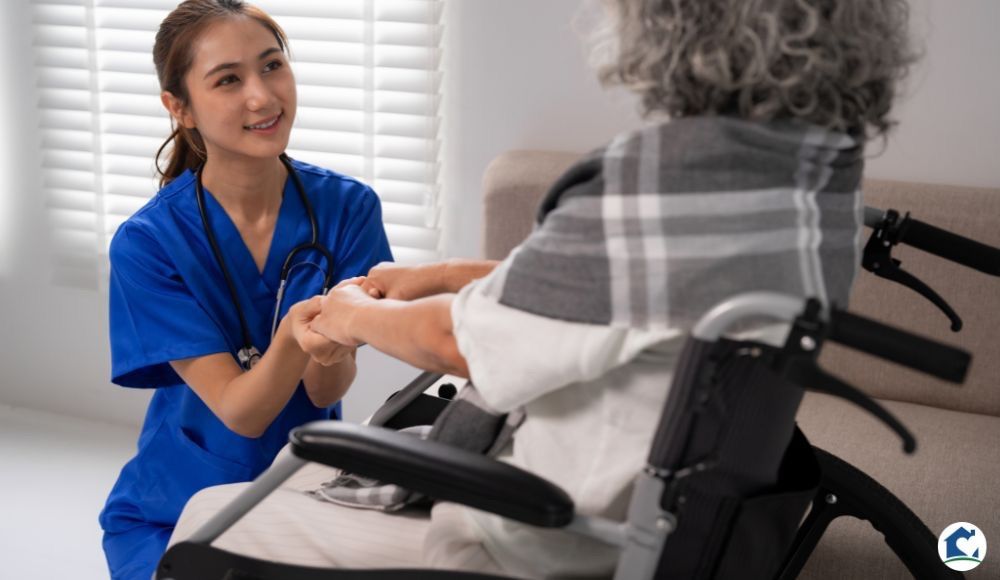How is Alzheimer's Diagnosed?
Not long ago, the diagnosis of dementia and Alzheimer's, the most prevalent form of dementia, was only possible post-mortem. However, with the strides in medical science, physicians now possess a range of tools to diagnose these conditions while the individual is still alive. While a single test for Alzheimer's or other dementia is yet to be developed, doctors can now rely on medical history, cognitive and functional assessments, brain imaging, biomarkers, and more to make a diagnosis.
There is currently no cure for dementia; however, early diagnosis offers many benefits, such as more treatment options, the potential to participate in more clinical trials, the ability to make lifestyle changes, the opportunity to focus on what is important, and the time to plan for the future.
If you are concerned that you or a loved one may be experiencing dementia symptoms, it's crucial that you discuss it with your healthcare provider immediately. Often, the first step is determining if another condition is causing the issues – a treatable condition. For example, depression, untreated sleep apnea, excessive alcohol consumption, thyroid problems, side effects of medication, and more are common causes of dementia-like symptoms.
Dementia and Alzheimer's Diagnostic Tools Your Healthcare Provider May Use
- A Conversation About Your Concerns
Your healthcare provider will ask you and possibly close family members questions about your concerns, such as what symptoms you have noticed, when they began, how often they happened, and whether they have worsened. - Medical History and Lifestyle
Your healthcare provider will ask many questions about your medical history, such as your psychiatric history, past and current medical issues and concerns, medications you're taking, medical conditions affecting other family members, etc. They will also ask about your diet and use of alcohol. - Physical Exam and Diagnostic Tests
Your healthcare provider will check your blood pressure, temperature, and pulse, listen to your heart and lungs, etc., to assess your overall health. They may also collect blood and urine samples. - Neurological Exam
Your healthcare provider may perform a neurological exam to discover brain disorders unrelated to dementia, such as stroke, brain tumors, Parkinson's disease, etc. They will test your reflexes, coordination, muscle tone and strength, eye movement, and speech. Your healthcare provider may also schedule you for an MRI or CT scan to rule out other conditions.
- Cerebrospinal Fluid (CSF) Analysis Test
Cerebrospinal fluid is produced in the brain, surrounding and protecting the brain and spinal cord. A sample of the fluid can be collected with a spinal tap or lumbar puncture. Medical News Today explains, "The CSF analysis test can… diagnose Alzheimer's disease by measuring levels of amyloid beta 1-42 (Aß1-42) and p- and t- tau proteins." - Blood Tests
"Researchers developed a blood test that could detect Alzheimer's disease-promoting compounds in the blood long before symptoms emerged," the National Institutes of Health (NIH) states. "The findings may lead to early diagnostic tests for Alzheimer's and other neurodegenerative diseases." Therefore, your healthcare provider may take a blood test. - Cognitive, Functional, and Behavioral Tests
Your physician may perform a cognitive, functional, and behavioral test to evaluate your memory, thinking, and problem-solving abilities. Examples of these tests include the Ascertain Dementia 8-item Questionnaire (AD8), Functional Activities Questionnaire, and Mini-Cog. - Computerized Cognitive Tests and Devices
The U.S. Food and Drug Administration (FDA) has currently cleared several computerized cognitive testing tools; however, they are more typically used in clinical trials and settings. - Depression Screening and Mood Assessment
Symptoms of depression and other mood disorders can be similar to dementia symptoms, so your physician may assess your well-being and mental status to help determine the actual cause of the symptoms.
Physicians and researchers continue to look for more accurate ways to diagnose Alzheimer's and dementia. While they have made great strides, there is still a long way to go. The current diagnostic accuracy of Alzheimer's or dementia is still debatable. For example, the Alzheimer's Association states, "Experts estimate a skilled physician can diagnose Alzheimer's disease with more than 90% accuracy." Whereas the National Library of Medicine reports a 77% rate for a clinical diagnosis of AD. Regardless, physicians are better at diagnosing these conditions today than twenty-five years ago.
Compassionate In-Home Care for Alzheimer's
If you or a loved one is diagnosed with dementia or Alzheimer's, Comforting Home Care by Phoebe can help. As the disease progresses, it can become increasingly challenging to provide the care and support your loved one needs. We offer compassionate in-home dementia care and Alzheimer's care designed to provide your loved one with the assistance they need to live comfortably and safely at home.
Give us a call today at 610-625-5206, or connect with us online.












